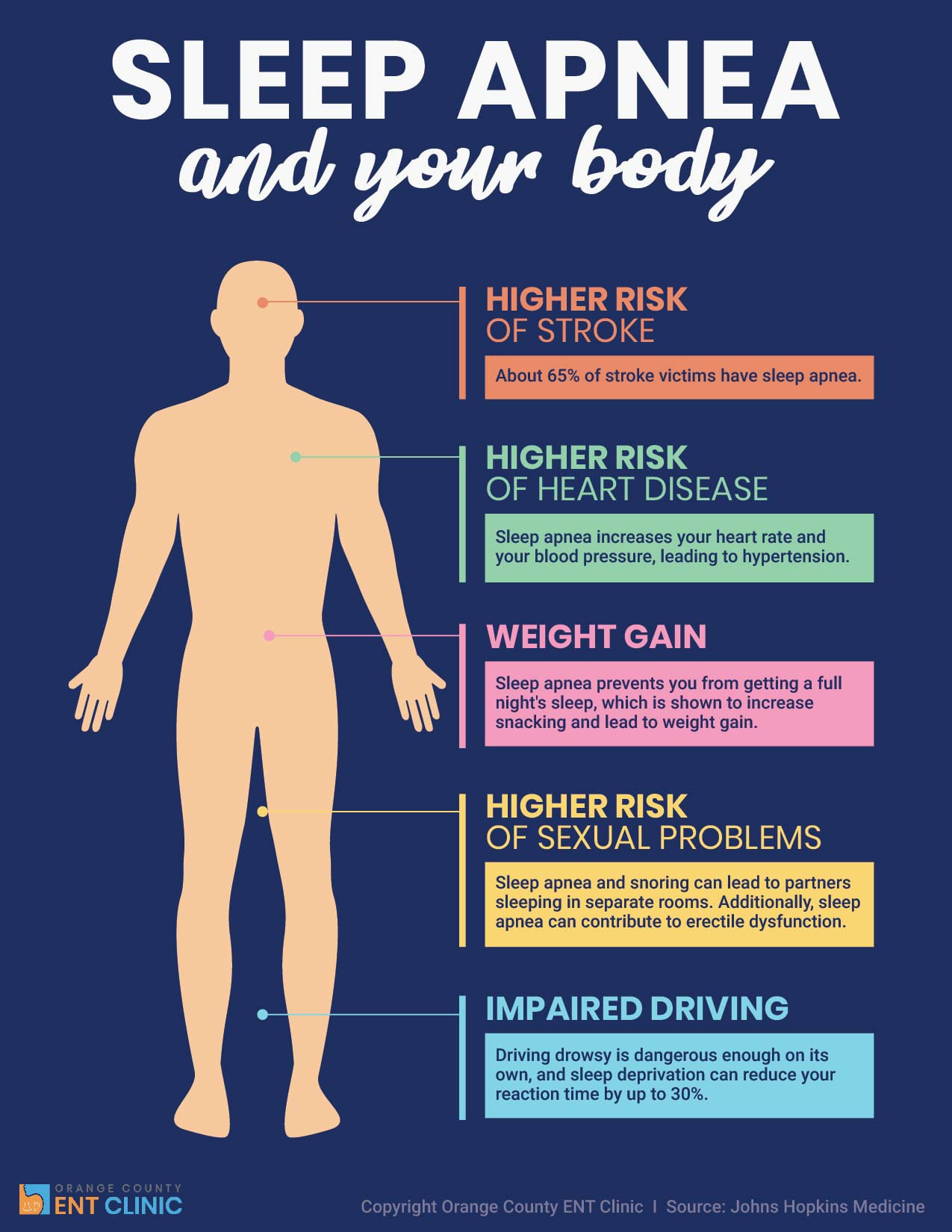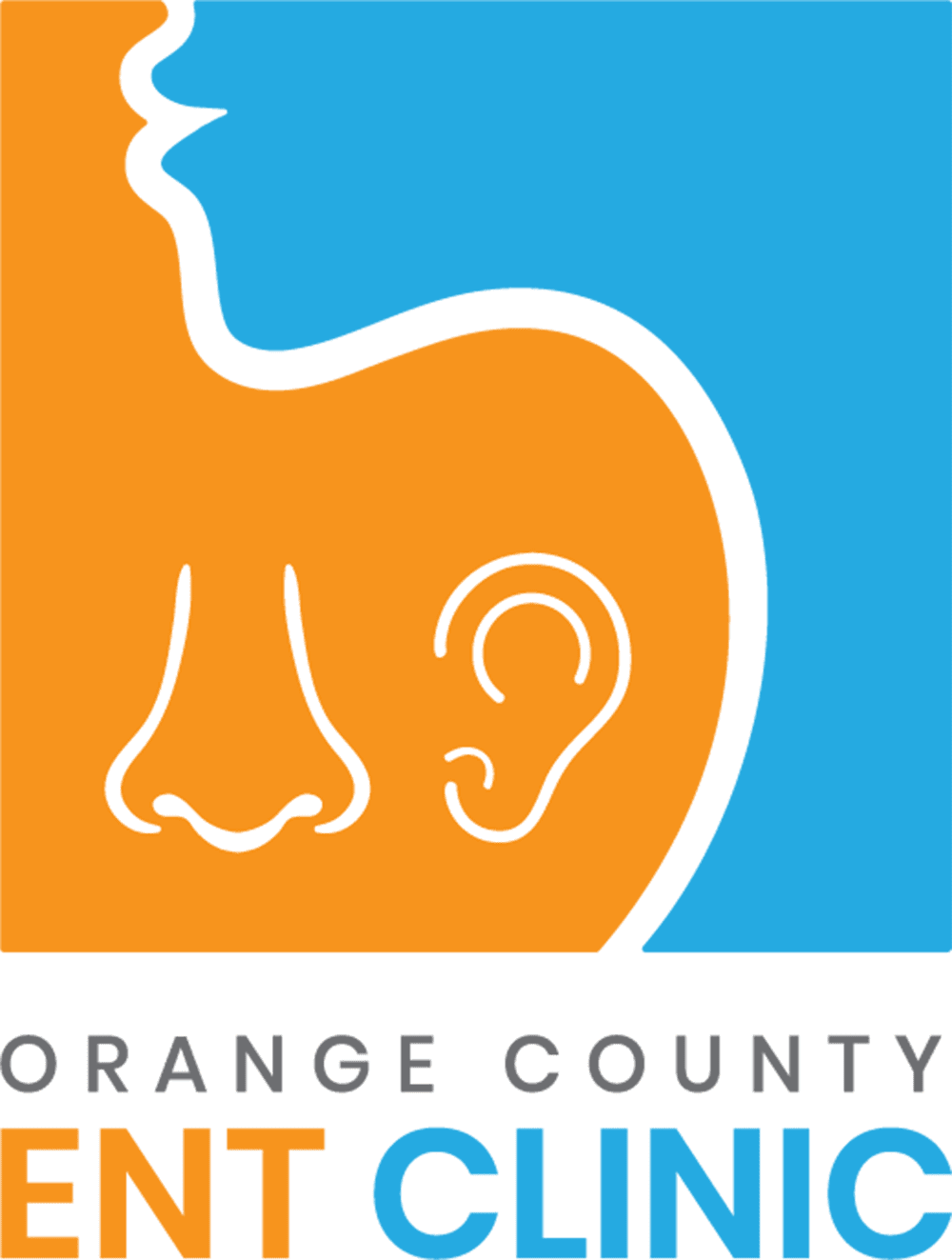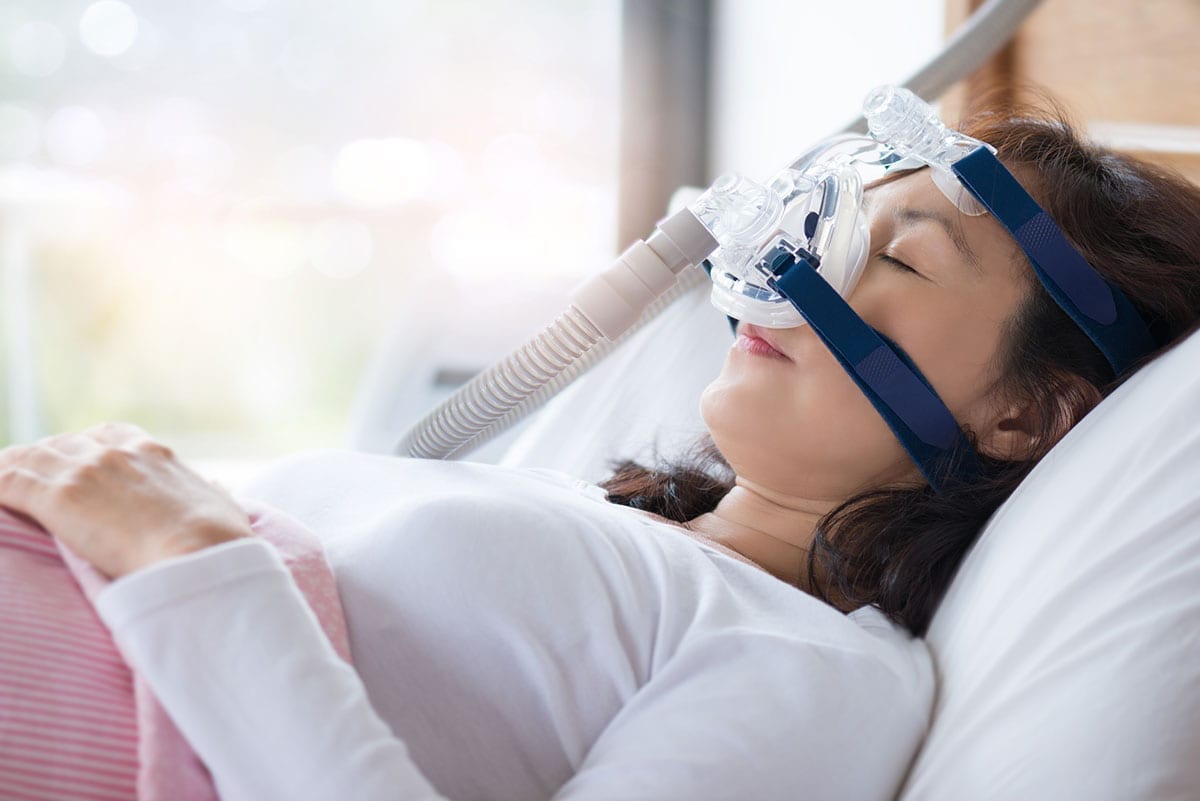Affecting more than 20 million Americans, according to some estimates, sleep apnea is a potentially dangerous condition that results in repeated breathing interruptions while sleeping. Loud snoring and waking up tired are among the signs that suggest you may have sleep apnea. But the multiple sleep interruptions associated with this condition can do more than just leave you tired during the day. Here's a closer look at how sleep apnea affects your body.
The Brain
Because sleep helps your brain process and group together memories, chronic issues with sleep apnea can contribute to memory loss. There's also evidence that people with sleep apnea are more likely to experience depression than their well-rested counterparts.
Respiratory and Endocrine Systems
Periodic sleep interruptions affect your body's oxygen supply, which can worsen certain respiratory conditions. A common example of this is patients who have existing issues with asthma experiencing more serve symptoms if they have chronic obstructive pulmonary disease (COPD). It's also possible for people with sleep apnea to develop endocrine system problems such as insulin resistance, which increases the risk of developing diabetes.
The Digestive System
Sleep apnea has the potential to affect different parts of the digestive system, including the liver. In fact, sleep apnea sufferers are more likely to develop fatty liver disease, a condition characterized by higher-than-normal levels of liver enzymes. Sleep apnea may also worsen symptoms of existing digestive issues like gastroesophageal reflux disease (GERD).
Other Ways Sleep Apnea Affects Your Body
If you have a type of sleep apnea called central sleep apnea, it's caused by disruptions to brain signals that affect your breathing. This form of sleep apnea can contribute to nervous system issues like numbness and tingling sensations. Other types of sleep apnea may lower sexual desire, or contribute to problems like erectile dysfunction (ED) in men. Sleep apnea could also contribute to the following health-related problems:
- High blood pressure
- Dry mouth, especially if sleep apnea causes you to become a "mouth breather"
- High LDL ("bad") cholesterol levels
- General fatigue (tiredness)
- Headaches
- Mood changes and increased irritability
- Difficulty paying attention
If you haven't yet been properly diagnosed with sleep apnea, you may be monitored overnight at a sleep center or given simple tests that can be done at home. Treatment for sleep apnea typically involves the use of oral appliances. The most commonly used one is a continuous positive airway pressure (CPAP) device that provides constant air pressure through a mask worn over the nose while sleeping.


